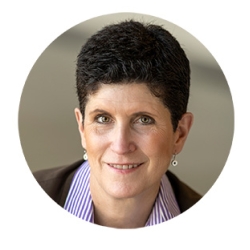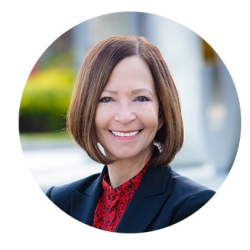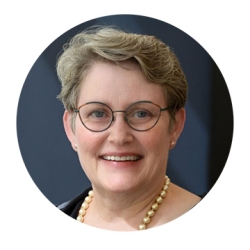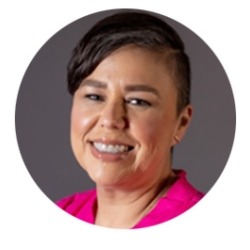The Vision
We strive to strengthen the individual viability of our three universities allowing continuous service to our communities in our shared geographic region, providing access to higher education to our extended communities, and preparing our local and regional workforce. Confronting the reality of demographic declines, we will start by creating a single effective and cost-efficient structure, the San Francisco Bay Region Network, for back-office administrative and transactional functions.
Guiding Principles for the Network
- Forming the Network is a fundamental step in ensuring that we align how we use our scarce resources to support student success. By increasing efficiency, reducing costs, and working collaboratively, we ensure that administrative and transactional services continue unimpeded despite funding challenges and prioritize resources for our critical teaching and learning missions.
- The Network will challenge the status quo and long-held traditions that are impediments to change and work with a sense of urgency.
- The Network will focus first on administrative services but does not rule out a networked approach to some student services, library, or academic platforms and programs and encourages all manner of collaboration among the three universities.
- The Network will streamline and standardize processes – consolidating where possible – and will utilize uniform technology systems and platforms.
- The Network will ultimately increase administrative efficiencies for all three universities and will strive to improve the current level of service provided for our administrative functions.
- Workforce reductions are a necessary component of achieving economies of scale. The Network will aim as much as possible to achieve workforce reductions via attrition, functional reassignments, and opportunities for professional growth.
- Design and implementation decisions will be made in consultation with campus experts with the explicit goal of developing uniform practices across all three universities. Stakeholders will engage in identifying promising practices.
- Design and implementation decisions will be based on data and national best practices.
- The Network will communicate design and implementation decisions and project progress transparently and frequently.
- These separately accredited universities must maintain their distinct characteristics, accreditation standards, and service to their surrounding communities during and after Network implementation.
Governance
An important element of this work is providing transparency in how decisions impacting the Network will be made. The governance for this initiative is as follows:
- Network university presidents: The three Network university presidents have overall authority and responsibility for the success of the Network.
- Network leadership: The three Network university presidents have delegated authority and responsibility for the operational design, implementation, and success of the Network to the Network’s Vice President & CFO, Jeff Wilson, and the Network’s leadership team.
- Network steering committee: The three Network university presidents and Network leadership will work closely with representatives from the Chancellor’s Office for advisement and guidance on key decisions throughout the initiative.
- Stakeholder engagement: Throughout the design and implementation, the Network project team will engage with key stakeholders across the three universities to inform key decisions that will be brought to the Network leadership and university presidents to opine.
Network Leadership



Dr. Michael E. Spagna began serving as President of Sonoma State University in January 2026. He most recently served as interim president of Cal Poly Humboldt, and previously served as Provost and Vice President for Academic Affairs at California State University, Dominguez Hills. A longtime CSU administrator, Spagna is committed to shared governance, student-centered outcomes, and the role of the university as a steward of place in service to its region. He holds a Ph.D. in Special Education from the joint doctoral program at the University of California, Berkeley and San Francisco State University, an M.A. in Special Education from UCLA, and a B.A. in Communicative Disorders from Northwestern.
Dr. Lynn Mahoney has served as the 14th President of San Francisco State University since July 2019, becoming the first woman to hold the role permanently. She previously served as Provost and Vice President for Academic Affairs at Cal State LA and held leadership roles at CSU Long Beach and Purchase College (SUNY). Mahoney has focused on advancing equity, student success, and faculty development, and is committed to providing San Francisco State students with an exceptional educational experience. She also supports a campus culture rooted in inclusion and academic excellence. Mahoney holds a Ph.D. in History from Rutgers University and a B.A. in American Studies from Stanford University.
Dr. Cathy Sandeen has served as President of Cal State East Bay since January 2021. A two-time CSU alumna, she is committed to expanding access and preparing graduates to meet regional workforce needs through high-quality, relevant degree programs. Under her leadership, the university has earned national recognition, including the Seal of Excelencia and top rankings for economic mobility. Prior to joining Cal State East Bay, Sandeen served as Chancellor of the University of Alaska Anchorage and the University of Wisconsin Colleges and Extension. She holds a Ph.D. in Communication from the University of Utah, an MBA from UCLA, and degrees from CSU Humboldt and San Francisco State.
Project Team


Jeff Wilson serves as Vice President and Chief Financial Officer for Administration and Finance at San Francisco State University and was recently appointed Interim Vice President for Administration and Finance at Sonoma State. He joined SF State in 2017 as Associate Vice President for Fiscal Affairs and previously held several leadership roles at Sonoma State. Wilson is the Project Lead for the SF Bay Region Network initiative, a tri-campus effort between San Francisco State, Sonoma State, and Cal State East Bay. A licensed CPA, he began his career in audit and consulting at Deloitte and also worked in the banking and retail sectors. He holds both bachelor's and master's degrees from the University of Alabama.
Dr. Karen Moranski serves as the inaugural Vice President for Regional Network Transformation for the SF Bay Region Network, a three-year leadership role shared across San Francisco State, Sonoma State, and Cal State East Bay. She has served as Provost and Vice President for Academic Affairs at Sonoma State since 2021, advancing diversity, interdisciplinary learning, and student success. Prior to that, she spent over two decades at the University of Illinois Springfield in academic and leadership roles. A scholar of medieval English literature and higher education, she holds an M.A. and Ph.D. in Medieval English Literature from UNC Chapel Hill.


Cristal Veronica Wallin serves as Project Manager for the SF Bay Region Network and Director of Administration & Strategic Planning in the Office of the Vice President and CFO at San Francisco State University. She holds a Master’s in Women’s Studies from SF State and a Bachelor’s in Human Communications and American Multicultural Studies from CSU Monterey Bay. Over nearly two decades at SF State, Cristal has contributed to a wide range of university functions, from student housing and downtown operations to enrollment services and fiscal strategy. She brings deep institutional insight, a strong equity lens, and a steady commitment to collaboration across departments and campuses.
Veronica Salvador serves as Communications Lead for the SF Bay Region Network and Director of Administrative Processes at Cal State East Bay. With over 20 years of experience in the CSU, she has led initiatives in strategic planning, innovation, and cross-campus collaboration. Her work includes key transformations in semester conversion, document automation, and travel and expense modernization. A two-time CSU alumna, Veronica holds a B.S. in Business Administration from Cal Poly San Luis Obispo and an MBA from Cal State East Bay. She is known for her systems thinking, collaborative style, and commitment to making higher education more human, agile, and forward-looking.
